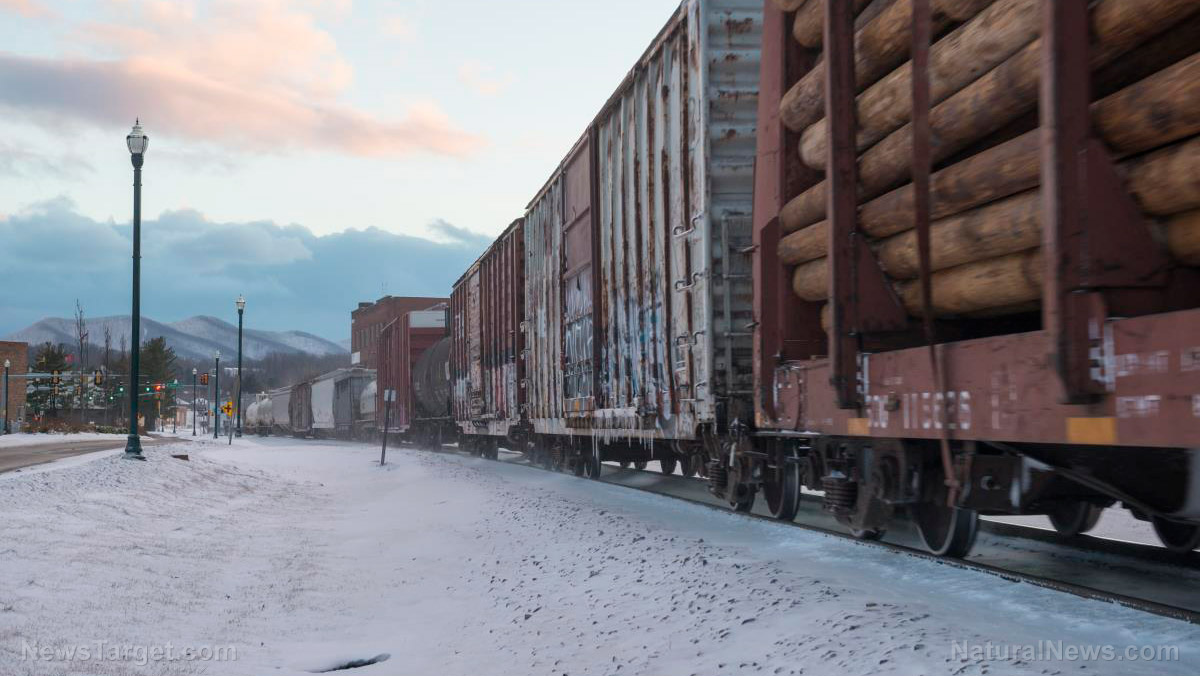THIRD union rejects Biden deal; likelihood of rail strike increases
11/17/2022 / By Ethan Huff

Another labor union, the International Brotherhood of Boilermakers (IBB), has rejected a tentative agreement with major freight railroads, bringing the country one step closer to a nationwide rail strike.
The third labor group to reject the Biden regime-brokered deal, IBB said in a statement that it has now entered a “cooling off” period with plans to continue negotiating better terms with the National Carriers’ Conference Committee (NCCC) that are more agreeable to its members.
The NCCC, by the way, represents the nation’s largest railroads, including BNSF, CSX, Norfolk Southern, and Union Pacific.
The other two labor unions that similarly rejected the Biden-brokered proposal include the Brotherhood of Railroad Signalmen (BRS) and the Brotherhood of Maintenance of Way Employees Division of the International Brotherhood of Teamsters (BMWED).
The rejected proposal included a 24 percent wage increase over a five-year period spanning from the beginning of 2020 through the end of 2024 going into 2025. That proposal did not, however, adequately address any of the union members’ concerns about quality of life issues, including lack of sick time and working on skeleton crews.
Biden’s Presidential Emergency Board (PEB) was supposed to tackle all of the unions’ concerns about these and other matters, however that did not happen. Now, one by one, unions are patently rejecting its proposal as inadequate, which means a nationwide strike is that much closer to occurring.
Will all 12 unions agree to Biden’s proposed terms by December, or will a nationwide strike occur?
Back in the summer, we warned that a nationwide rail halt could have occurred even back then. It was averted, however, pending a proposal from the PEB.
There was also a mandatory “cooling off” period that had to be completed, followed by the recent midterm election cycle. Now, the issue is back on the table and the country is just weeks away from a possible logistics calamity.
Some of the unions whose bosses approved the PEB’s recommendations back in September are outraged that this happened since the agreement lacks the necessary improvements to working conditions that members demanded.
In order to avoid a strike, all 12 unions involved in the negotiations must agree to ratify their new contracts. With three of them having recently voted down said contracts, the situation is not looking good.
Should a strike occur – and one appears likely in the coming days – the supply chain will take a major hit. The economy at large will end up losing an estimated $2 billion per day, which would likely prompt an intervention by Congress.
We are told that all of the unions have at least agreed to continue negotiating into early December. What becomes of this remains to be seen, though it seems unlikely that all 12 unions will end up agreeing to ratify the proposal unless it is bolstered to a significant degree.
Thus far, seven of the 12 unions have voted to ratify their contracts while the aforementioned three voted against it. This leaves two unions that still have to decide, and they are expected to do so by next week.
“Electing Biden has been a complete catastrophe,” wrote a commenter about the Biden regime’s failure to negotiate a suitable agreement on behalf of America’s rail unions. “Elections have consequences.”
“Keeping Democrats in control of the Senate is going to ensure the economy stays chaotic and recessionary, and that inflation and gas prices will remain unaffordable.”
“This agreement was never going to be approved by the members,” added another. “The union officials agreed to it only to make Biden look good before the midterms and to take this out of the news for a while.”
If rail unions’ demands are not met, the nation’s economy will grind to a halt. To keep up with the latest, visit Collapse.news.
Sources for this article include:
Submit a correction >>
Tagged Under:
Biden, Collapse, economic riot, freight, IBB, inflation, International Brotherhood of Boilermakers, logistics, rail, risk, strike, supply chain, union
This article may contain statements that reflect the opinion of the author
RECENT NEWS & ARTICLES
COPYRIGHT © 2017 HARVEST NEWS




















